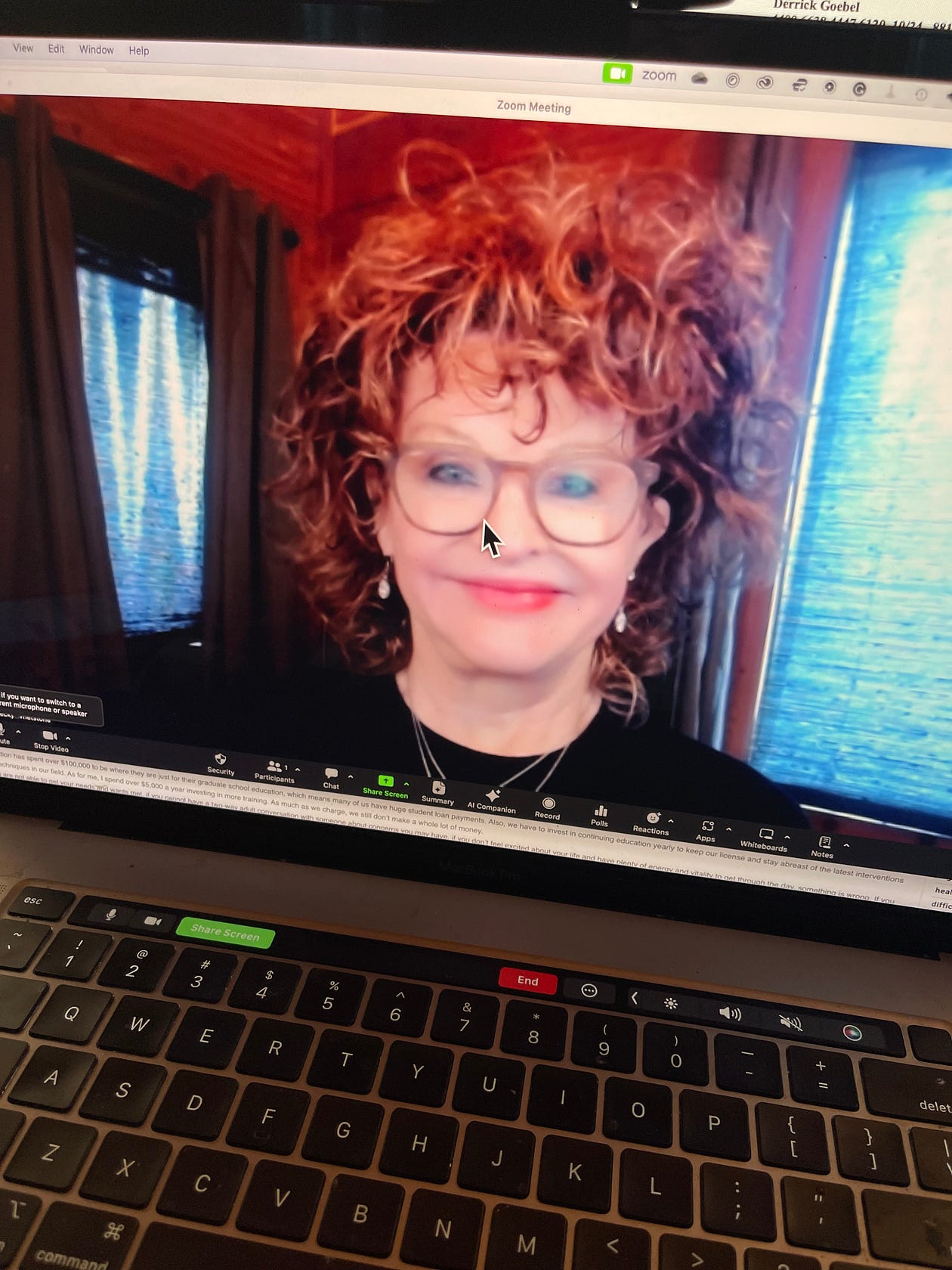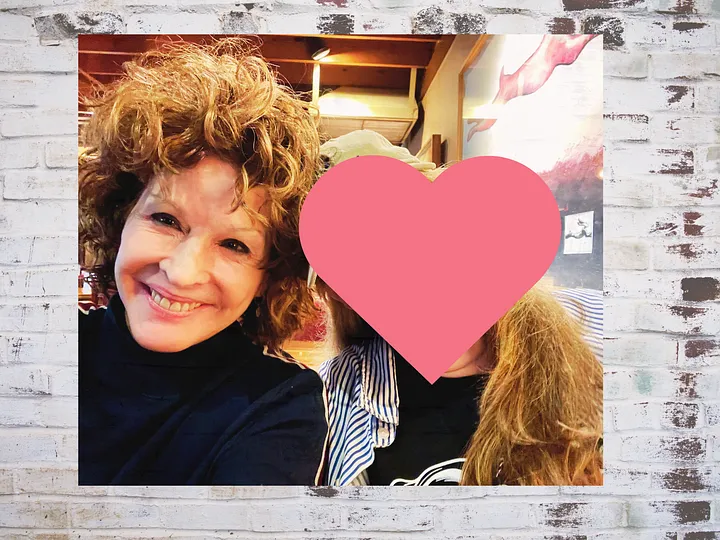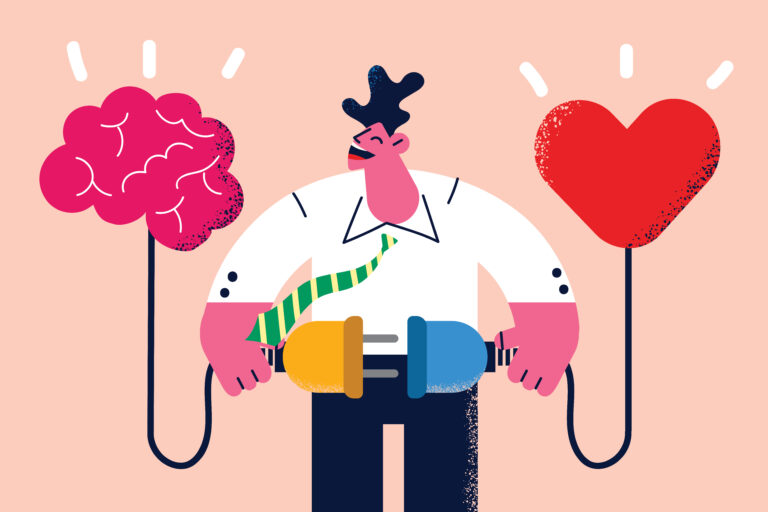Why We’re Screwed Up, and Yes, Childhood, and Parents Matter
It’s easy to screw kids up, and your parents probably did.

by Becky Whetstone, Ph.D.
If you’re struggling with living a life of contentment, and your intimate relationships haven’t been working very well, then I’d bet almost anything you have childhood developmental trauma. (CDT) In counseling, I’m able to show clients how what happened to them long ago, when they were dependent on others, causes them to be dysfunctional today. There is no need to be afraid or ashamed of this truth, it is something that happened to all of us, with few exceptions, no matter what type of family and/or life experiences we had. Growing up is a delicate period of child development, and it is very easy to get traumatized, even by seemingly kind acts and even with caretakers who had the best intentions.
The interesting thing is that many of us deny that we could have been traumatized in our own childhood or minimize what happened. The proof is in the pudding, however, when your presenting issues are described to, or experienced by, your trauma therapist. The types of trauma are explained below, I’m certain you will be surprised by many of them.
What happened to us.
The end goal of parenting is to come out at the end with a human who is grown up and capable of taking care of themselves, has solid will, drive, motivation, and self-worth, as well as able to have healthy adult relationships that involve emotional and physical intimacy, sharing and give-and-take. Suppose we are struggling in any mental or emotional area in our adult years, if our self-esteem isn’t good, and if we don’t know how to set proper boundaries, we take things personally and have harsh reactions, to name just a few, then chances are it is due to childhood trauma. Just today, I spoke with someone who wants to change their life. They said they control how the house is run and how it looks, they shut down for days when their spouse says anything remotely critical, and though they miss their spouse when they travel for work, they’re not very nice to them when they come home. They know it’s all wrong but don’t know how to change it. All these things can be explained by being traumatized in childhood. The good news is all are fixable.
How do we get damaged? When we are born our brain needs certain things to be able to thrive and progress developmentally. If we fail to meet our developmental goals at any point, for whatever reason, we will be emotionally stunted at whatever age that happens. For example, black-and-white thinkers are frozen at an emotional age younger than 11 because 11 is when a child usually moves from black-and-white thinking to an ability to engage in abstract thoughts. To be able to be a critical thinker as opposed to a black or white thinker will serve you well in all aspects of your life as an adult, yet I have clients all the time who take pride in being black and white thinkers, and when I hear that, they will be told it’s nothing to brag about. Adults can be taught and guided to move past the developmental stages they missed.
The best ways to meet those goals are to be massively loved and tended to, have lots of positive engagement and interactions with caretakers, be given lots of freedom to explore the world around you, and be allowed to grow into whomever you were meant to be, even if that is wildly different than your family. Common causes of childhood trauma are neglect and lack of nurturing, guidance, and protection, and though you may have had your basic needs met as a baby, you might not have had enough of the closeness and tenderness infants require. Look back at your family and ask, are they nurturing people? I know my family wasn’t; they had no idea how important it was.
Babies and young children need an enormous amount of attention and nurturing. Children who were born and spent a lot of time in the hospital at the beginning of their lives almost always have attachment issues, for example. A helicopter parent may mean well but implant fear in a child about stepping out into the world and doing things independently. This often leads to dependency later when the goal is for them to be independent. A strict or rigid upbringing will implant fear and toxic shame, the feeling of not measuring up, and physical abuse is a good way to ensure your child will be emotionally damaged in their early years, as it is like injecting the child with a syringe of toxic shame. With each strike, the poison of “there is something wrong with you” goes straight into their veins, killing their self-esteem and leaving them full of self-loathing. The possibilities for damaging our children are endless.
Unfortunately, when a child decides they aren’t good enough, they look around and try to figure out how to fake being good enough. The best way, they conclude, is to become what their caretakers admire or hold in high regard — caretaking, pleasing, being perfect, rescuing, fixing, helping, overachieving, being physically desirable, and more. The children who live with people they can’t trust or count on are often full of self-hatred and take the path of being a rebel or a deadbeat. They tell themselves they’d fail at anything anyway, so why try?
Here are the different types of trauma that were on a list I received while training with Pia Mellody, author of Facing Codependence. Defense mechanisms explain why so many adults are in denial that they were traumatized as children.
Defense mechanisms children use to protect themselves. People often deny their abuse — these mechanisms serve to eradicate knowledge about the family of origin. This is why so many refuse to own or accept that they were traumatized on some level in childhood because their defense mechanisms won’t allow them to see it. One of the most important things in trauma treatment is to get clients to see their childhoods as they really were, for better or worse.
- Suppression — Excluded things from conscious awareness.
- Repression — Not allowing yourself to recognize things that happened to you.
- Dissociation — Disconnection or separation from conscious awareness.
Note: Adults use minimization, denial, and delusion to distort their family history so that the nature of the history of the family of origin remains unclear. Therapists who ask about childhood trauma will hear clients deny abuse when, after a further exploration and understanding of what abuse is, it will be found. For example, I had a client once who told me she had good parents, but when she was a child, both were prone to slapping her in the face at random, and she never understood the reasons why. “Good parents?” I said, “That doesn’t sound like good parents to me.” Her jaw dropped, and in an instant, she understood. Once a person gets it, we can start helping them recover.
For those who say they don’t want to go negative on their parents, it is important to understand that the purpose of figuring out what happened is not to blame but to understand. You need to get that your parents were imperfect and made mistakes, as we all do. It’s not about were they a bad parent or the best parents. It’s that they made mistakes as parents. Children are imperfect by nature and innocent. The wild nature of many children is a difficult situation, and tries even the best parent’s patience. Still, when we snap at them, even if it is for their own safety, they deduct that there is something wrong with them and they are not good enough, even though what they do is normal for a wild animal known as a child. To prevent a child from blaming themselves as being defective in some way, a parent must take responsibility and repair the mistake by accepting responsibility after they make parenting errors. Too few parents do that, and it’s never too late to start, even if the mistakes you made were a long time ago.
The nature of the body, feeling memories, and spontaneous regressions. Trauma often manifests itself in our bodies and the feelings we experience are called somatic memories. Somatic means “of the body.” Observing what is happening inside your body will often result in spontaneous memories from the past, long forgotten. Getting one’s history straight literally digs up the roots of the disease. A good exercise is to sit still, take a deep breath, be quiet, and notice any feelings of pressure, tingling, aching, or energy in your body. I often feel it in my stomach or chest. The next step is to focus on it and see what happens next. These feelings often move around. Follow it and see where it goes. You may experience spontaneous memories while doing this or feel an urge to do something with it. My trauma energy often ends up in my throat, and I feel an urge to cough or hack it out. This literally discharges old, stored-up stuff that has been in your body for a very long time. Another great discharging exercise is to make vibrational noises like some meditators do … Ohmmmm or voooooo.
Here are the types of abuse children experience. Though some people can easily recall verbal, emotional, or physical abuse in their family, many others don’t recall any, and many more will vehemently deny abuse. Look at the categories of abuse and relational trauma, and tell me that some of it doesn’t surprise you:
- Physical Trauma. Includes abject abuse (threats), use of implements, face slapping, shaking the child, hair pulling, head banging, tickling a child into hysteria, lack of appropriate physical nurturing, and intrusive procedures.
- Physical-Sexual Trauma. Includes sexual intercourse, oral sex, anal sex, masturbation of a child, having a child masturbate an adult, sexual touch and/or fondling, sexual kissing, and sexual hugging.
- Overt-explicit sexual trauma. Includes voyeurism, exhibitionism, and verbal sexual trauma.
- Emotional-sexual trauma. Involves emotional enmeshment by the parent or caregiver.
- Covert-sexual trauma. Occurs when a parent or caregiver does not set appropriate sexual boundaries for a child. It also occurs when a child witnesses sexual trauma.
- Intellectual Trauma. Includes attacks on a child’s thinking process, not validating a child’s thoughts or feelings, over-control of the expression of a child’s thoughts, and failure on the part of a major caregiver to teach logical thinking and problem-solving.
- Emotional Trauma. A parent or caregiver refuses to allow a child to express feelings, shames a child for his/her feelings, or demonstrates improper expression of his/her feelings in front of a child. Wrongful punishment. Strict discipline, neglect.
- Spiritual Trauma. Includes a parent or caregiver disrespecting the child’s reality, for example, not respecting what a child reports to you, or telling them what they saw did not happen. Demanding to be a child’s higher power, demanding perfection, over-controlling, ignoring, neglecting, abandoning, or indulging a child. The parent or major caregiver may be a religious addict or the child may be traumatized by a religious leader. Spiritual trauma also occurs when a parent or major caregiver does not follow the established family rules or values as though he or she is above those rules and values. All relational trauma is spiritual trauma because it teaches the child to be one up or one down. One-up or one-down means in a conversation, someone either talks down to another as if they are not as good as they are or treats the other person as if they are better than they are. Many parents talk down to their children, especially when angry.
Other types of trauma. Other types of trauma include peer or social trauma for reasons of race, religion, sexuality, and or physical appearance.
- Overt and covert abuse.
- Passive v active trauma
- Disempowering v. falsely empowering abuse. Telling a child they’re worthless or can do no wrong.
- Enmeshment v. abandonment. Being emotionally intertwined with a child, and/or allowing a child to become who they are and creating a sense that they must meet your needs over their own.
“Trauma occurs from any experience in childhood that is dysfunctional or less than nurturing.”
-Pia Mellody, in Facing Codependence
Summary: “Many of us were raised in homes where this kind of behavior (the abuse) was common and grew up under the delusion that what happened to us was normal and appropriate. Our caregivers encouraged us to believe that our problems arose because we didn’t respond appropriately to what happened or something was wrong with us. Because of this, many of us arrived in adulthood with baffling feelings and a distorted way of looking at what happened in our family of origin. We thought that our families behaved toward us correctly and our caregivers were good. This meant, by unconscious deduction, that since we weren’t happy or comfortable with some of the things that went on, we were still not good enough, and it was our fault. Also, the message was we couldn’t please our parents by being who and what we were, naturally. This delusion that the abuse was normal, and we were wrong locks us into the disease of codependence with no way out.
– from Facing Codependence, by Pia Mellody. (1)
Even if we somehow made it through the above with a solid sense of self, most of us will take on shame at some point or the feeling that we aren’t good enough or don’t measure up, which will cause emotional damage. This happens as we realize we can’t be what our family and culture want and need us to be, and then we injure our psyche by comparing ourselves to others. I’ve had clients insist that they never had emotional issues until they married and were demeaned by their spouse. Add to that the energy that our parents or primary caregiver projected — anger, sadness, negativity, fear, pain — children cannot protect themselves from other people’s emotional energy, and they absorb it as if were their own. Now, the child is carrying a load of heavy emotions that isn’t even theirs. All of these are traumatizing to a child emotionally and will cause Developmental Immaturity (DI), which means that our bodies grow into adults, but our emotions are that of a child, and in the most negative sense — tantrums, pouting, drama, chaos. DI will persist until we go into recovery and grow ourselves up. My client, who reports giving their spouse the silent treatment for days at a time, is an example of this.
Childhood trauma damages us emotionally in five core areas:
1. Self-esteem. Healthy self-esteem means understanding your inherent value despite imperfections and not feeling better than or less than anyone else. For example, I am of equal value to musician Paul McCartney. We each have different amounts of money, talents, gifts, and achievements, but none of that defines our value as a human. Our humanity does.
The developmentally immature person will exhibit one of two types of self-esteem, and both are dysfunctional — shame and grandiosity. Shame is one of life’s most painful emotions and causes us to have contempt for ourselves. Grandiosity is a feeling of being better than others and having contempt for others. A common dysfunctional belief related to self-esteem is that is that value is based on external things such as appearance, achievement, work ethic, etc. The mere fact that we are human beings is what makes us valuable.
2. Boundaries. Boundaries are how we protect ourselves and how we contain ourselves. The idea is “Protection of self so you don’t injure me physically or emotionally, and controlling myself so I won’t harm you.” Boundaries can involve the body or the psyche. DI means a person will either be unable to protect themselves from others and, therefore, will be frequently abused or victimized or so walled off that they are unreachable physically or emotionally. The walled-off person lives life as if living in a bank vault, and although they will likely couple up, they can’t have a functional, intimate relationship with another person.
3. Reality. This is how we perceive the information we see, hear, and feel daily. Our perception becomes our reality. Information comes into our awareness, and we attach a meaning to it. Developmentally immature people do not accurately process what they see, hear, and feel concerning themselves and others. They make up meanings that aren’t true, they assume and jump to conclusions, put people on a pedestal, or look down on them instead of seeing them as the flawed and imperfect humans we all are.
4. Dependency. A healthy adult can have a truly interdependent[1] relationship with another person. When dysfunctional in this category, an adult is completely dependent on others — they can’t be alone or function emotionally or financially without the assistance of others. The other end of the spectrum is anti-dependent, without needs and wants from others — I call these people “an island unto themselves.”
5. Moderation. Children have difficulty controlling themselves, and some adults have this issue, too. Think of those who don’t control their spending, eating, schedule, etc. On the other end of the spectrum is the person who is out of control with being in control, a control freak who will not be spontaneous and live by a rigid plan. In the middle is healthy moderation of self. An example of the three is that the moderate person would eat one piece rather than the whole cake, another would eat the whole thing, and another would never allow themselves to have any at all.
This was a brief overview of what happens to us that keeps us from growing up and being able to live and relate as mature adults. People don’t magically grow up and start being functional and mature; it is a skill that must be learned and practiced, and a lot of people who start doing that will need to do some level of trauma work. It is nothing to fear and is an endeavor that is worthwhile and life changing.
To get you started on your journey I recommend you read the work of Pia Mellody, especially her books Facing Codependence, Breaking Free, which is the workbook to Facing Codependence, and The Intimacy Factor. Her model for going into recovery from developmental immaturity is used and respected throughout the world. Pia Mellody-trained therapists know this model well. It is also worthwhile to attend workshops led by Pia Mellody trained therapists or at the world-renowned Meadows Behavioral Health and Rehabilitation Center in Wickenburg, Arizona, where Mellody first developed her model.
[1] Interdependent: Mutually reliant. Two adults capable of taking care of themselves physically, emotionally and financially coming together in relationship and creating a more powerful union of helping and assisting one another.
RelationshipsSelf CareSelf ImprovementChildhood
2. Mellody, P., Miller, A. W., Miller, J. K. (1989). Facing codependency: What it is, where it comes from, how it sabotages our lives. New York: Harper Colllns Publishers.
Join Doctor Becky on Zoom

Zoom with Becky!! We will have 45-minute conversations every two weeks on Zoom through the end of March — Fridays at noon CDT — about what you have on your mind regarding relationships. Charge $50/per, limit 100 participants. If you’d like to join us, sign up below.
Hello readers,
You are invited to a Zoom webinar.
When: Dec 29, 2023 12:00 PM Central Time (US and Canada)
Topic: Conversations with Doctor Becky Whetstone.
Register in advance for this webinar, cost $50/per:
https://us02web.zoom.us/webinar/register/WN_j8bM2v-4SJO0r2MxK4sbnQ
After registering, you will receive a confirmation email containing information about joining the webinar.
Becky Whetstone, Ph.D., is a licensed Marriage and Family Therapist in Arkansas and Texas* and is known as America’s Marriage Crisis Manager®. She is a former features writer and columnist for the San Antonio Express-News and has worked with thousands of couples to save their marriages. She can work with you, too, as a life coach. She is also co-host of the Call Your Mother Relationship Show on YouTube and has a private practice in Little Rock, Arkansas, as a life coach via Zoom. To contact her, check out www.DoctorBecky.com and www.MarriageCrisisManager.com. Don’t forget to follow her on Medium so you don’t miss a thing!
For licensure verification, find Becky Whetstone Cheairs.
If you liked this, you’ll probably enjoy this: https://marriagecrisismanager.com/staging/7172/five-ways-our-childhood-screws-us-up-f62d95dc162f/





